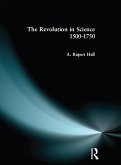This scholarly and accessible study presents "a provocative new reading" of the late sixteenth- and seventeenth-century advances in scientific inquiry (Kirkus Reviews). In The Scientific Revolution, historian Steven Shapin challenges the very idea that any such a "revolution" ever took place. Rejecting the narrative that a new and unifying paradigm suddenly took hold, he demonstrates how the conduct of science emerged from a wide array of early modern philosophical agendas, political commitments, and religious beliefs. In this analysis, early modern science is shown not as a set of disembodied ideas, but as historically situated ways of knowing and doing. Shapin shows that every principle identified as the modernizing essence of science-whether it's experimentalism, mathematical methodology, or a mechanical conception of nature-was in fact contested by sixteenth- and seventeenth-century practitioners with equal claims to modernity. Shapin argues that this contested legacy is nevertheless rightly understood as the origin of modern science, its problems as well as its acknowledged achievements. This updated edition includes a new bibliographic essay featuring the latest scholarship. "An excellent book." -Anthony Gottlieb, New York Times Book Review
Dieser Download kann aus rechtlichen Gründen nur mit Rechnungsadresse in A, B, BG, CY, CZ, D, DK, EW, E, FIN, F, GR, HR, H, IRL, I, LT, L, LR, M, NL, PL, P, R, S, SLO, SK ausgeliefert werden.









